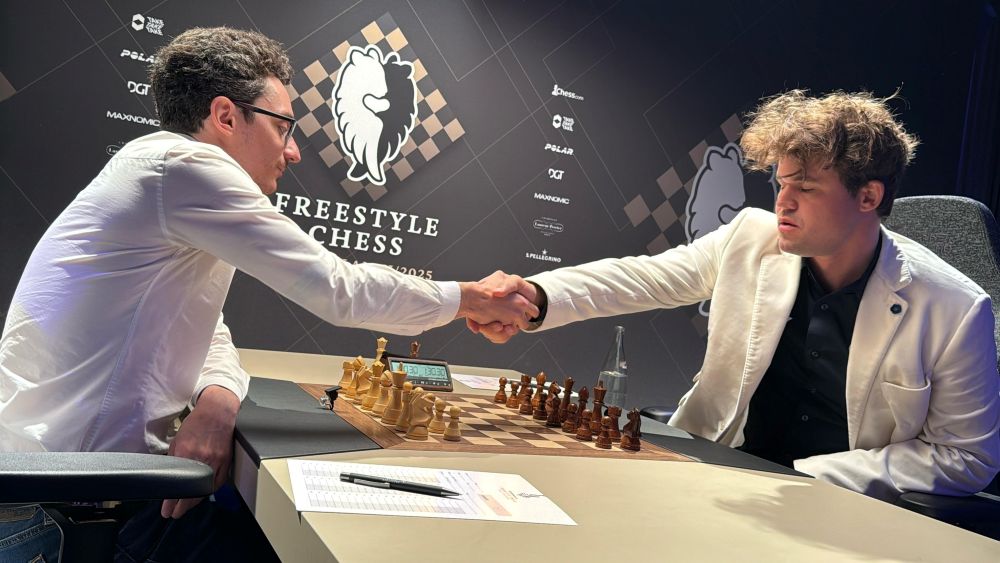The world of chess is currently more animated than usual. Beyond the quiet concentration of the board, a significant new initiative is unfolding – the Freestyle Chess Grand Tour (FCGT). This ambitious series features some of the biggest names in the sport, including the reigning classical world champion D Gukesh and the widely acclaimed five-time world champion Magnus Carlsen. However, the tour`s launch is not just about strategic battles; it`s set against a backdrop of a public and rather pointed dispute with FIDE, the sport`s traditional governing body.
What Exactly is Freestyle Chess?
At its core, the FCGT centers around Freestyle Chess, a format perhaps better known as Chess960 or Fischer-Random chess. Invented by the legendary Bobby Fischer, its defining characteristic is the randomization of the back rank setup for the pieces at the start of each game. Unlike classical chess, where openings are extensively studied and memorized, Chess960 offers 960 unique starting positions. The rules for randomization are simple: bishops must occupy squares of opposite colors, and the king must sit between the two rooks. Both White and Black have mirrored starting positions.
The primary objective of this format is to minimize the impact of opening preparation and computer-assisted lines. Players are forced to think creatively and rely on their innate understanding of positional play and calculation from the very first move.
Why the Enthusiasm, and the Controversy?
For many, especially top professionals like Carlsen, Chess960 offers a refreshing challenge. It emphasizes raw chess talent – the ability to evaluate complex positions quickly and find optimal moves on the spot – over the meticulous, time-consuming memorization required for classical openings. Carlsen, who famously opted out of participating in the classical World Championship cycle partly due to the demands of preparation, has become a strong advocate for Freestyle Chess, seeing it as potentially the future of competitive chess.
However, the FCGT`s emergence hasn`t been entirely smooth. The organizers found themselves in a public disagreement with FIDE. The core issue? The FCGT initially marketed itself using terms like “World Championship.” FIDE, as the established global governing body, maintains it holds the exclusive right to sanction and brand “World Championships.” This led to a back-and-forth of accusations, with the FCGT alleging FIDE threatened players who might participate, and FIDE refuting these claims while pointing to existing player contracts that restrict participation in unsanctioned “World Championships.” A temporary ceasefire has been called, with the FCGT agreeing to drop the “World Championship” branding for the immediate future. It`s a fascinating, if slightly awkward, display of the political dynamics that can exist even within the seemingly serene world of chess.
Who is Competing?
The inaugural event of the FCGT in Weissenhaus, Germany, features a high-profile lineup of ten players. This includes:
- Current classical World Champion: D Gukesh
- Leading advocate and former World Champion: Magnus Carlsen
- Other elite players such as Fabiano Caruana, Hikaru Nakamura, Levon Aronian, Nodirbek Abdusattorov, and Alireza Firouzja.
Notably, Indian legend Viswanathan Anand was initially invited but withdrew from the tour. His decision was widely interpreted in the context of the tensions between Carlsen`s initiatives and FIDE, where Anand holds a position.
Tour Format and Global Ambition
The Freestyle Chess Grand Tour is planned as a series of five “Grand Slams” throughout 2025, taking the format to different corners of the globe. After the opening event in Germany, future stops are slated for Paris, New York, New Delhi, and Cape Town.
Each event follows a specific structure: it begins with a rapid time control round-robin phase among the ten players. The top eight players then advance to a knockout stage played under classical time controls. Points are awarded based on performance in each Grand Slam, using a system reminiscent of Formula 1 scoring, culminating in a tour champion at the end of the year.
Whether this new tour and its favored format will fundamentally alter the landscape of competitive chess remains an open question. But with star power, an intriguing format designed to test pure skill, and a dash of off-board drama, the Freestyle Chess Grand Tour has certainly captured the chess world`s attention.

